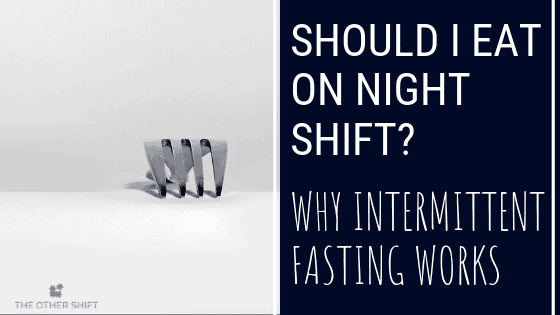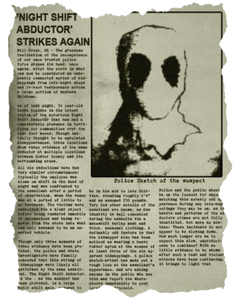- Commodores Night Shift Meaning
- Night Shift Names
- Night Shift Game Puppet Combo
- Night Shift Meaning In Hindi
- Night Shift Brewery Boston
What Is Shiftwork?
Commodores Night Shift Meaning
Of course, Night Shift only addresses part of the problem. Using your iPhone and iPad at night, especially for highly-engaging activities like video games, social networking, and messaging can also keep you awake and mess with your sleep hygiene.
The definition of shift work varies. In many cases, shift work is defined as work that takes place outside of ‘ordinary hours of work as defined in an award, registered agreement, or employment contract.
- Night shift definition is - a period of time during the night (such as from 11 p.m. To 7 a.m.) in which a person is scheduled to work. How to use night shift in a sentence.
- A group of workers who work a shift during the night in an industry or occupation where a day shift or a back shift is also worked. The period worked. See also back shift. Collins English Dictionary - Complete.
Many businesses rely on shift workers to keep things running seamlessly 24 hours a day, 7 days a week. Some of the roles that may involve shift work include customer service and security.
Businesses that operate 24 hours a day require employees to work different shifts. Depending upon the operations of the business, shifts may be arranged in any number of different ways. Customarily, it is not uncommon to observe shifts being arranged as follows:
- morning shift
- night shift
- weekend shift
These schedules may be fixed (the employee is expected to work the same schedule each week) or variable (the employee is expected to work a rotating schedule of different shifts at different times of the day). They may also be required to be available to work upon request at any time of day (on-call).
The nature of the schedule – and what an award, agreement, or contract deems as ‘ordinary hours’ – may affect the type of penalties an employee receives. Microsoft word free download 2013 for mac.


What Are Shift Workers?
Shift workers have different annual leave entitlements to regular employees. According to Australian legislation, under the Fair Work Act 2009, an employee is considered to be a shift worker if they:
- work for a business where shifts are rostered 24-hours a day, seven days a week
- are regularly rostered to work those shifts
- regularly work Sundays and public holidays
- employees defined as a ‘shiftworker’ in the applicable Modern Award or Enterprise Agreement
So if you are an employer with workers under these arrangements, they are entitled to five weeks of annual leave.
Shift Penalties
Given the antisocial nature of shift work, many awards and agreements provide shift workers with an increased rate of pay. The increased rate of pay is frequently referred to as a penalty rate or shift loading.

Night Shift Names
Whether or not a penalty will be applied and how it will be applied depends on the modern award, enterprise agreement or contract of employment.
Depending on the nature of the work, employers may also need to include allowances to reimburse shift workers for additional expenses they have incurred during their employment – such as meals, travel, and accommodation.
They might also be required to give shift workers additional breaks, which might even be paid
It is also the employer’s responsibility to ensure that shift workers are paid the right amount, in accordance with the terms of the relevant award, registered agreement, or employment contract.
Night Shift Penalty Rates
Whether night shift workers are entitled to penalty rates depends on how a ‘night shift’ is defined in the award or agreement. Employers should refer to their respective award or registered agreement for clarity on night shift penalty rates. Some employees get paid a permanent night shift loading if they always work night shifts.
Overtime Rates
Overtime refers to work performed outside of ordinary hours. The spread of ordinary hours should be reflected in the respective award, registered agreement, or employment contracts. As the rate of pay for overtime may differ depending on when it is worked, the applicable rate should also be specified.
Full-time employees are typically considered to be working overtime if they work beyond 38 hours for the week. While this is conventionally the understanding of ‘overtime’, there may still be variations depending on the nature of the job and modern award, which may specify the maximum ordinary hours an employee can work per day and times within which the employee can work those ordinary hours, in which case any time worked outside those hours may be payable as overtime.
Some agreements may allow an employee to take paid time off, instead of receiving overtime pay. This is commonly known as ‘time off in lieu’. If employers opt for this approach, it needs to be established in writing with the employee’s consent and meet any award requirements.
We can help you understand your obligations in relation to shift penalties and overtime in your business. Call us now on 1300 207 182 for free initial advice.
Frequently Asked Questions

Night Shift Game Puppet Combo
What Is Shift Loading?
A Shift loading is a higher rate of pay that is paid to an employee for working their ordinary hours outside of normal business hours e.g. for working:
- weekends
- late at night
- early in the morning.
What Is A Shift Allowance?
An allowance is an additional payment made to employee for
- doing certain tasks or whom have extra skills
- using their own tools at work
- working in unpleasant or dangerous conditions.
Shift allowance are allowances that apply when employees work certain shifts, e.g. meal allowances or travel allowances as public transport may not be operating.
Do Employers Have To Pay Shift Allowance?
It will depend on the applicable award or registered agreement or employee’s employment contract. It will also depend on whether the employee is paid a higher wage to off-set any loadings or allowances as per their employment contract or registered agreement.
What Are Penalty Rates?
A higher pay rate that can apply when an employee works (extra) hours outside of their ordinary hours, or works when most people are off work, for example when an employee works evenings, weekends, or public holidays.
Do Employers Have To Pay Penalty Rates?
It will depend on the applicable award, registered agreement or employment contract, and whether the employee is paid a higher rate of pay to off-set award entitlements as expressed in their employment contract or registered agreement.
Who Is Entitled To Penalty Rates?
Depending on the award, registered agreement or employment contract, generally an employee who works overtime, weekends, evenings, nights or early mornings, or public holidays.
What Is The Penalty Rate For Public Holidays?
It depends on the award, registered agreement or employment contract, but if an employee works on a designated public holiday they are generally entitled to a higher rate of pay, which may be as much as 250% of the employee’s hourly rate, and possibly even more if the employee is a casual.
What Time Does Overnight Pay Start?
It will depend on the award, registered agreement or employment contract, which should set out the hours.
Do Employers Have To Pay Overtime In Australia?
Yes – overtime will be payable if it is proscribed by an award, registered agreement or employment contract.
However, an employer may not have to pay extra for ‘reasonable’ overtime if the employee is paid a higher rate of pay to off-set award entitlements as expressed in their employment contract or registered agreement.
What Hours Are Considered Shift Differential?
Shift Differential is not a term recognised by the Fair Work Act in Australia, but generally it refers to extra compensation for employees who work shifts outside of normal business hours, usually in the evenings or at night.
Night Shift Meaning In Hindi
Guides in this categoryView all
Night Shift Brewery Boston
Other guide categoriesView all categories
